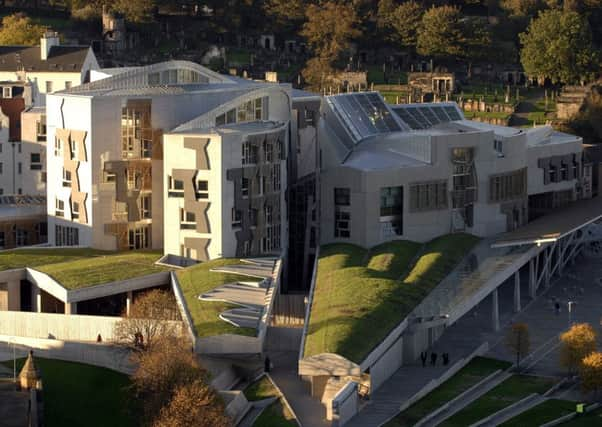Catholic Church calls for action on religious hate crime


They have urged ministers to acknowledge the frequency with which Catholics are being targeted in incidents north of the Border.
Church bosses fear there is a “vague” approach and a lack of a targeted strategy from ministers to address the issue, and are expected to raise this during the meeting which will be held when parliament returns after the summer recess.
Advertisement
Hide AdAdvertisement
Hide AdThe reluctance of ministers to adopt a “name and shame” approach to the problem is being highlighted by the Catholic hierarchy who say it must first be “identified” before it is tackled.
Religiously aggravated crime is rising in Scotland, with more than half of all hate crimes (57 per cent) targeting Catholics or Catholicism, according to the official religious hate crime statistics released in June. This is despite the fact that Catholics only account for 17 per cent of the population in Scotland.
Peter Kearney, director of the Scottish Catholic Media Office (SCMO), says the figures show Scottish society “remains scarred by past hatreds and tumults”.
“Were any other type of crime to be dominated so completely by a single type of behaviour, we might expect a targeted strategy to emerge, promoted by the authorities as a response to a particular problem,” he says in an article for The Scotsman to be published this week.
Community safety minister Annabelle Ewing is now to expected meet church leaders next month following a series of Parliamentary Questions lodged by the Labour MSP Elaine Smith.
Previous government crackdowns on problems like mobile phone use while driving or drink driving are backed up by campaigns targeting the behaviour involved, rather than generic appeals for “safe driving”, Mr Kearney adds.
“The approach is sensible and logical, before a problem can be tackled, it must first be identified and addressed,” he says.
“Surprisingly, this doesn’t happen when it comes to religious intolerance and the criminal behaviour which goes with it.
Advertisement
Hide AdAdvertisement
Hide Ad“An indication of the government’s unwillingness to adopt a name and shame approach to religious hate crime came in those recent parliamentary exchanges.”
Mr Kearney says the response from cabinet secretary Angela Constance to concerns is “vague”, with a public campaign pledged to raise awareness in “wider society”.
He adds: “In the view of many, it is a narrowing focus on this problem which might be most appropriate not a wider one.”
The recent figures show there were 673 charges reported in 2016-17, up 14 per cent on 2015-16 and the highest number over the past four years.
More than half (377) were made under laws aimed at tackling sectarianism in football.
Charges under the Offensive Behaviour at Football and Threatening Communications (Scotland) Act increased 32 per cent on the previous year, with 140 of these related to the Scottish Cup final between Rangers and Hibs in May last year.
Scottish Labour brought forward proposals to have the Offensive Behaviour at Football Act scrapped. The move has the support of all opposition parties at Holyrood who could combine to defeat the SNP government.
The Scottish Government says it is providing more than £20 million of funding from the Equality Budget during 2017-18 to help promote equality and address discrimination.
Advertisement
Hide AdAdvertisement
Hide AdOf this funding, over £2.6m has been granted to organisations working to progress race equality.
A Scottish Government spokeswoman said: “There is no place for any form of prejudice in Scotland.
“We are committed to tackling all forms of discrimination and promoting a multi-cultural society based on mutual trust, respect and understanding.
“Everyone has the right to be safe and to feel safe which is why we are committed to building strong, resilient and supportive communities for all.”